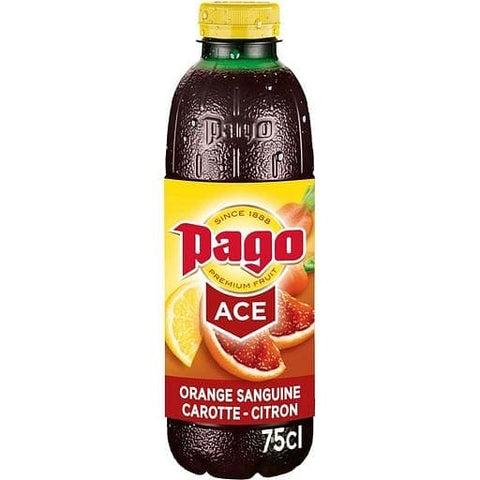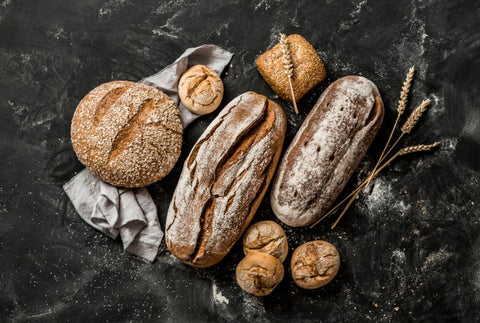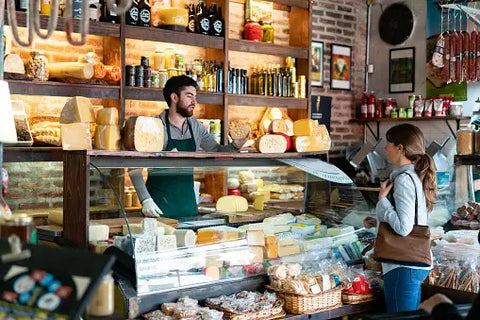French cuisine holds a prestigious place in the world of gastronomy, renowned for its elegance, sophistication, and culinary artistry. Over the centuries, French cuisine has had a significant influence on international culinary trends, shaping the way we approach cooking, dining, and appreciating food. In this article, we explore the profound impact of French cuisine on global gastronomy, examining how its techniques, ingredients, and culinary philosophy have permeated kitchens worldwide.
1. Haute Cuisine: French cuisine, particularly the concept of "haute cuisine," has greatly influenced culinary traditions worldwide. Haute cuisine emphasizes meticulous preparation, attention to detail, and the use of quality ingredients. The emphasis on precision, balance, and presentation has become a benchmark for fine dining establishments around the world.
2. French Culinary Techniques: French cooking techniques, such as sautéing, braising, poaching, and flambéing, have become fundamental skills in professional kitchens worldwide. These techniques ensure optimal flavor development, texture, and consistency in dishes across various cuisines.
3. The Brigade System: The French brigade system, a hierarchical structure in professional kitchens, has been adopted globally. This system assigns specific roles and responsibilities to chefs and kitchen staff, ensuring smooth operations and efficient teamwork. Many kitchens worldwide adhere to this system to maintain organization and discipline.
4. French Sauces: French sauces, such as béchamel, velouté, hollandaise, and espagnole, have become the foundation of classic culinary preparations. These sauces add depth, richness, and complexity to dishes and have been incorporated into cuisines across the globe.
5. The Art of Pastry and Baking: French pastry and baking techniques are celebrated worldwide. The French have perfected the art of creating delicate pastries, flaky croissants, rich cakes, and exquisite desserts. Pastry chefs trained in French techniques are highly sought after, and French patisseries have become an integral part of culinary landscapes worldwide.
6. Emphasis on Seasonal and Local Ingredients: French cuisine has long championed the use of seasonal and locally sourced ingredients. This emphasis on freshness and quality has influenced chefs worldwide to prioritize local produce, promoting sustainability and supporting local farmers and artisans.
7. Cheese and Wine Pairing: France is renowned for its exceptional cheese and wine culture. The art of pairing different cheeses with specific wines has become a widespread practice globally. French cheese varieties, such as Brie, Camembert, and Roquefort, are sought after worldwide for their distinct flavors and textures.
8. Culinary Education: French culinary education, with institutions like Le Cordon Bleu and Institut Paul Bocuse, has attracted aspiring chefs from all corners of the globe. These schools impart classic French culinary techniques and knowledge, producing highly skilled chefs who bring the influence of French cuisine to their home countries.
9. French Fusion Cuisine: French cuisine has embraced fusion cooking, combining traditional French techniques with flavors and ingredients from other cultures. This approach has inspired chefs worldwide to experiment with blending diverse culinary traditions, resulting in exciting and innovative fusion cuisines.
10. French Culinary Philosophy: The French approach to food as an art form, emphasizing quality, creativity, and the enjoyment of meals as a social experience, has transcended borders. The philosophy of savoring meals, valuing fresh ingredients, and appreciating the balance of flavors has influenced dining cultures around the world.
11. Nouvelle Cuisine: In the 20th century, French cuisine underwent a significant transformation with the emergence of "nouvelle cuisine." This movement, led by chefs such as Paul Bocuse and Alain Chapel, emphasized lighter, fresher dishes with minimal use of heavy sauces and elaborate presentations. Nouvelle cuisine focused on preserving the natural flavors of ingredients and revolutionized the culinary world with its emphasis on simplicity and artistic plating.
12. The Rise of French Bistros: French bistros, characterized by their casual and convivial atmosphere, have become popular culinary establishments around the world. These cozy eateries serve hearty, traditional French dishes like boeuf bourguignon, coq au vin, and escargots, providing a taste of French culinary heritage in a relaxed setting.
13. French Influence on Culinary Vocabulary: French culinary terms have become the lingua franca of the culinary world. Words such as "sauté," "roux," "mise en place," and "au gratin" are commonly used by chefs and food enthusiasts globally, illustrating the enduring influence of French culinary vocabulary.
14. French Influence on International Cuisine: French cuisine has influenced the culinary traditions of various countries, leading to the development of unique regional cuisines. French culinary techniques, such as the use of butter and cream, have influenced the cuisine of countries like Canada, Louisiana (USA), and Vietnam, resulting in distinct culinary fusions.
15. Michelin Guide and International Recognition: The Michelin Guide, originally created in France, has expanded globally, recognizing outstanding restaurants around the world. The influence of the Michelin Guide has led to the promotion and elevation of culinary excellence worldwide, with chefs and establishments striving to achieve Michelin recognition and excellence in their own cuisines.
16. French Pastries and Bakeries: French pastries, from croissants and pain au chocolat to macarons and éclairs, have gained international fame and are cherished as symbols of French culinary expertise. French-inspired bakeries have sprung up in many countries, offering a delectable array of artisanal bread, pastries, and desserts.
17. French Cooking Shows and Celebrity Chefs: French cooking shows and celebrity chefs have gained global popularity, showcasing French culinary techniques and inspiring home cooks around the world. Chefs like Julia Child and Jacques Pépin have introduced French recipes and cooking methods to international audiences, making French cuisine accessible and celebrated.
18. French Wines and Vineyards: France's rich winemaking tradition has had a profound impact on the global wine industry. French wines, such as Bordeaux, Burgundy, and Champagne, are revered for their quality and elegance. The French wine classification system and grape varieties have become benchmarks for winemakers worldwide.
19. French Culinary Diplomacy: French cuisine has played a significant role in diplomatic and cultural exchanges between countries. French chefs and culinary experts are often invited as cultural ambassadors to showcase the country's culinary heritage and foster international collaborations and friendships through the shared love of food.
20. The Legacy of French Cuisine: French cuisine continues to inspire chefs, food enthusiasts, and culinary professionals around the world. Its legacy is evident in the enduring popularity of French dishes, techniques, and culinary traditions, ensuring that the influence of French cuisine on international culinary trends will persist for generations to come.
Conclusion:
French cuisine's influence on international culinary trends is undeniable. Its techniques, philosophy, and emphasis on quality have shaped how we approach food and dining globally. From classic French cooking techniques to the art of pastry and baking, French cuisine has become a reference point for culinary excellence. The impact of French cuisine can be seen in professional kitchens, cooking schools, fine dining establishments, and even in home kitchens worldwide
. As we continue to explore and celebrate the diversity of global cuisine, French culinary traditions remain a timeless source of inspiration and innovation.




